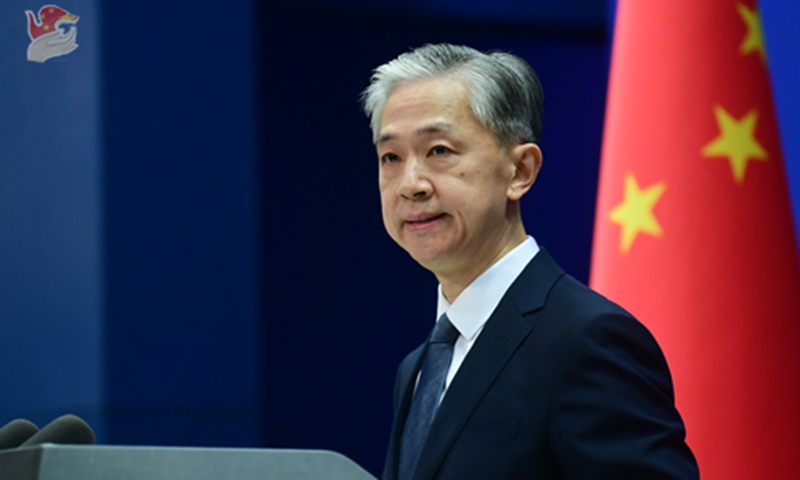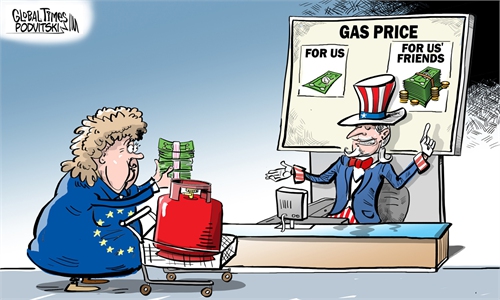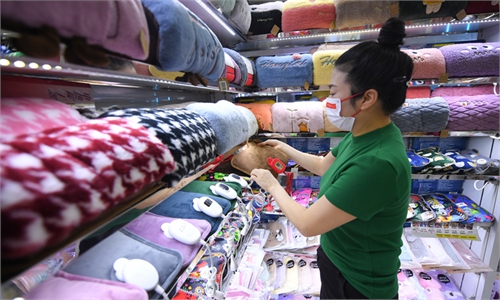
Chinese Foreign Ministry spokesperson Wang Wenbin Photo: fmprc.gov.cn
China and Europe are partners not rivals, with close economic connectivity and strong complementarity, and bilateral cooperation is far greater than competition, Wang Wenbin, a spokesperson of China's Foreign Ministry, said on Monday.Wang made the comment in response to a reporter's question as to whether the EU's foreign affairs arm may advise member states to reduce dependence on Chinese supply chains.
The formation and development of global industry and supply chains reflect the combined effects of market laws and corporate choices, Wang said, noting that artificial restrictions imposed for political purposes run against with international cooperation and destabilize industry and supply chains, which is not conducive to economic development, and not in the interests of any country.
In citing recent remarks by Josep Borrell Fontelles, high representative of the EU for foreign affairs and security policy, at the EU Ambassadors Annual Conference 2022 in Brussels, Wang noted that "Chinese workers with their low salaries have done much better and much more to contain inflation than all the central banks together."
From heating products like heat pumps and electric carpets to textile products like turtleneck sweaters, Chinese products have been fairly important and timely choices for European countries that are scrambling to deal with a serious fuel shortage and high inflation.
In the first eight months of this year, Yiwu in East China's Zhejiang Province, the world's largest wholesale market for small commodities, exported 190 million yuan ($26.5 million) worth of heating equipment, such as air conditioners and electric blankets, up 41.6 percent on a yearly basis, according to data provided by Yiwu customs to the Global Times.
China and EU countries have become important trading partners with high economic complementarity, reflected by the significant trade between the two sides.
Last year, China-EU trade exceeded $800 billion for the first time while bilateral trade this year has been resilient, despite the pandemic, inflation and geopolitical conflicts.
The China-Europe freight train, the backbone of bilateral trade, has become a strong channel between factories in China and European stores. Even amid global challenges and uncertainties, 12,000 cross-border cargo trains have operated so far this year, up 7 percent year-on-year. In total 1.18 million standard containers were carried, up 8 percent, data from China Railway showed.
Some Western politicians' rhetoric about reducing dependency on China is not new. In May 2021, the European Commission presented its updated industrial strategy, including plans to reduce dependency on China and other foreign suppliers in strategic areas.
China hoped that the EU would view China-EU cooperation objectively, enhance the common interests of both sides and maintain the stability of the global industrial supply chain, Wang said.



